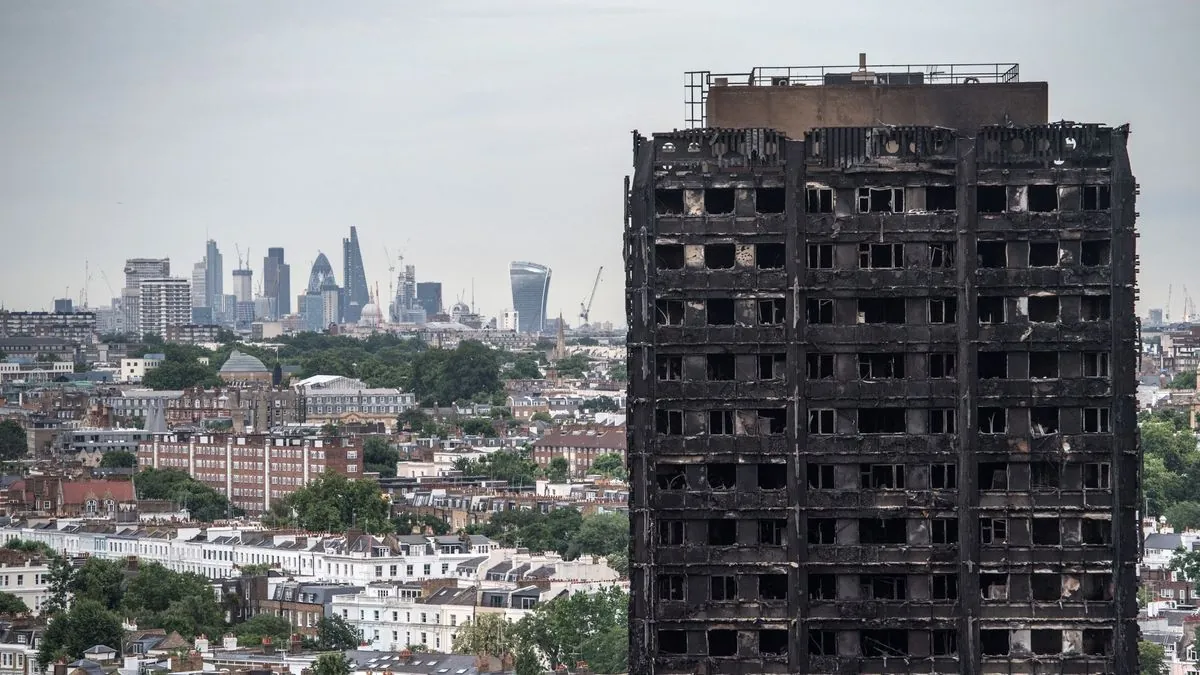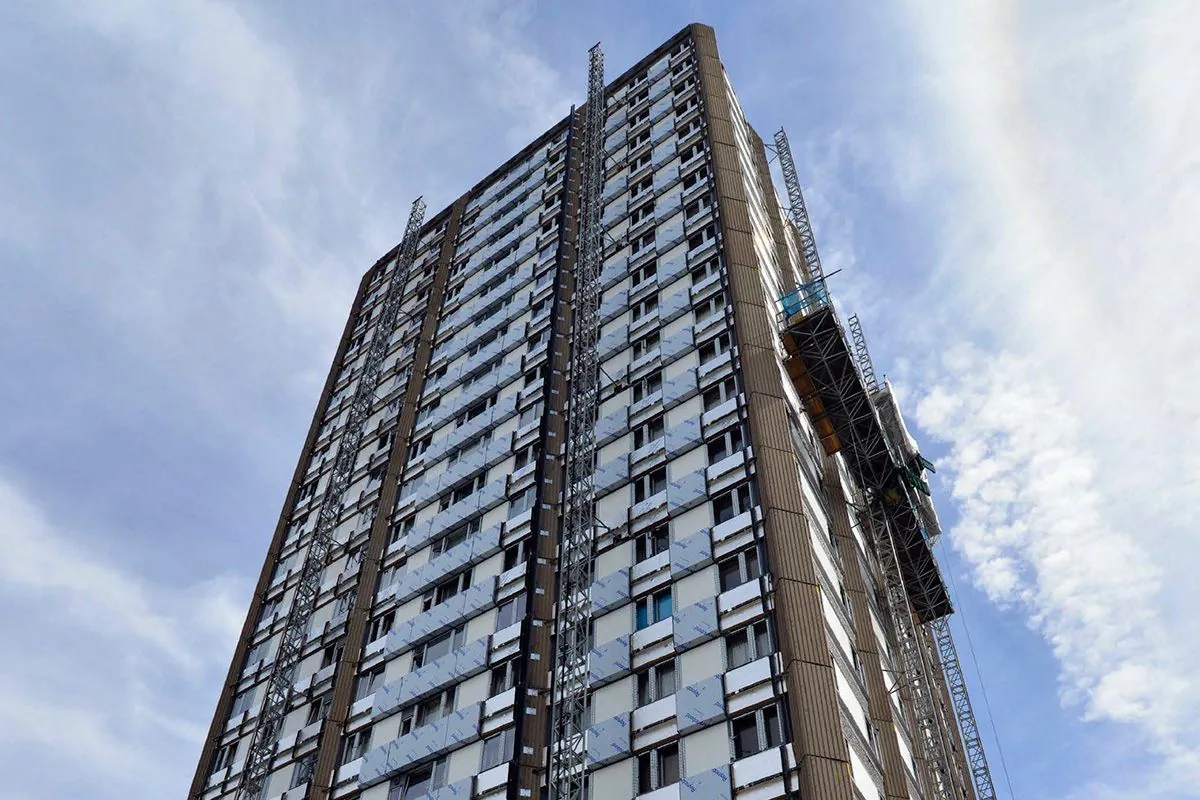Grenfell Inquiry: Decades of Failure Led to Tragic Fire, Report Concludes
A public inquiry into the 2017 Grenfell Tower fire reveals systemic failures across government and industry. The report criticizes authorities' response and highlights corporate negligence in the tragedy that claimed 72 lives.

The public inquiry into the Grenfell Tower fire, which occurred seven years ago, has concluded that the tragedy resulted from "a culmination of decades of failure" by various entities. The report, released on September 4, 2024, places significant blame on the government, construction industry, and local authorities for their roles in the disaster that claimed 72 lives.
The inquiry's findings reveal a series of missed opportunities and negligent practices that contributed to the catastrophe. The government, led by former Conservative Prime Minister Theresa May at the time, failed to act on numerous warnings and prioritized deregulation over safety concerns. This inaction dates back to 2001 when the government disregarded alarming results from a large-scale test involving flammable cladding.

The Royal Borough of Kensington and Chelsea (RBKC) and the Kensington and Chelsea Tenant Management Organisation (TMO) were found to have failed in their responsibilities to ensure building safety and proper management of fire risks. Elizabeth Campbell, leader of the Kensington and Chelsea Council, issued an apology, acknowledging the "withering critique of a system broken from top to bottom."
"We fully accept the findings, which are a withering critique of a system broken from top to bottom. It is crystal clear – profits were put before people, clear warning signs were ignored, and Grenfell was wholly avoidable, with failure at every single level."
The report also highlights the "systematic dishonesty" of several companies involved in the refurbishment of Grenfell Tower. Arconic, Celotex, and Kingspan were named for their roles in manufacturing and selling combustible materials used in the building's cladding and insulation. These companies were accused of manipulating testing processes and misleading the market about the safety of their products.
Architectural firm Studio E, construction contractor Rydon, and cladding sub-contractor Harley were criticized for their "casual approach" to fire safety and contractual relations. The inquiry found that cost-saving measures took precedence over safety considerations in the choice of materials used in the tower's refurbishment.
The London Fire Brigade (LFB) was not spared criticism, with the report noting its ill-preparedness to handle the Grenfell fire. Andy Roe, London Fire Commissioner, acknowledged the unprecedented challenge faced by the brigade and stated that significant changes have since been implemented.
This comprehensive inquiry, one of the longest and most complex in British legal history, has shed light on the systemic failures that led to the Grenfell tragedy. The findings underscore the need for improved safety standards, stricter oversight, and a fundamental shift in prioritizing human lives over cost-cutting measures in the construction and management of high-rise buildings.
As the UK reflects on this devastating event, the Grenfell inquiry serves as a stark reminder of the importance of vigilance in building safety and the potential consequences of neglecting these crucial responsibilities.


































